SUMMARY
This is AI generated summarization, which may have errors. For context, always refer to the full article.
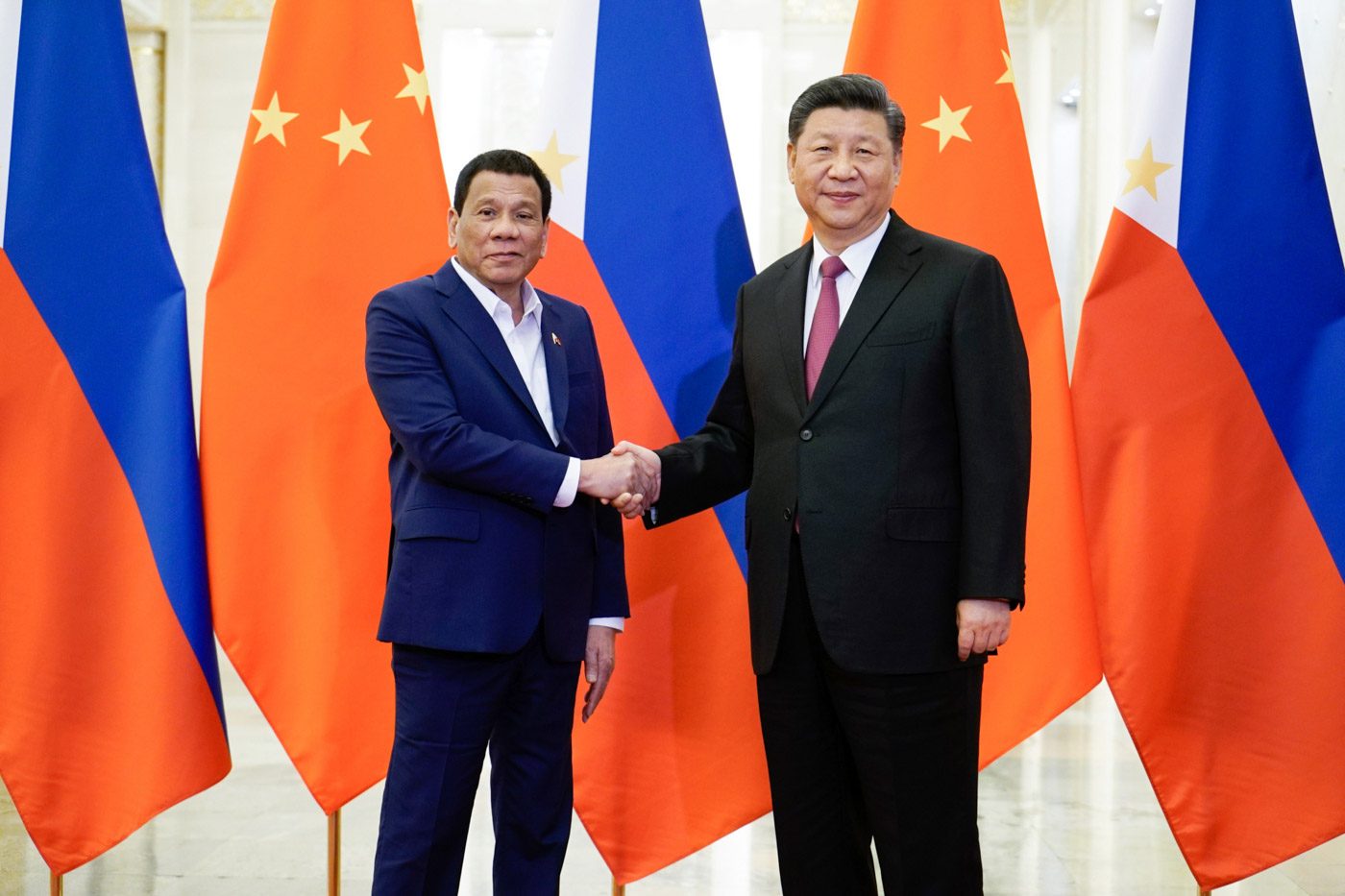
MANILA, Philippines – After 22 Filipino fishermen aboard fishing boat Gem-Ver were sunk by a Chinese vessel in the West Philippine Sea (South China Sea), they face another collision at home: with their own government.
While the fishermen insisted that they were rammed by a Chinese vessel, President Rodrigo Duterte on June 17 dismissed their ordeal as a “maritime incident.”
At the same time, Duterte’s men either refused to adopt the fishermen’s statements or contradicted them outright.
The President himself echoed China’s foreign ministry, which said on June 13 that the sinking of Gem-Ver was an “ordinary maritime traffic accident.” He refused to condemn China – a far cry from his outrage against the United States, the European Union, Canada, and Kuwait over perceived affronts to Filipinos.
Duterte also agreed to China’s offer of a joint Manila-Beijing investigation into the issue – which, according to critics, places the Philippines and China in one team against the fishermen.
“Hindi namin alam kung kinakampihan pa kami (We don’t know if they’re still siding with us),” said Fe dela Torre, one of the owners of Gem-Ver, on June 18.
Senator Panfilo Lacson said Duterte’s spokesman, Salvador Panelo, seems to be “lawyering for China.”
“He is acting like the defense ministry of China, or is lawyering for the Chinese crew, because he is finding loopholes in our fishermen’s words,” said Lacson in a mix of English and Filipino. “His mindset is like a defense counsel entering his appearance for China, as if he was in a courtroom.”
Is the Philippine government indeed lawyering for China?
Rappler compiled the questions raised by the Duterte administration about what happened on June 9, and the words of the Filipino fishermen themselves.
What comes up is the story of Filipinos first being rammed by a Chinese vessel, and then later put on the defensive by their own government.
Intentional or accidental?
When Defense Secretary Delfin Lorenzana on Independence Day, June 12, broke the story of the Recto Bank incident, he first described it as a “collision.”
Lorenzana said the Filipino boat was anchored when it was hit by the Chinese. Because of this, Foreign Secretary Teodoro Locsin Jr said the right word to use is “allision,” which refers to a speeding boat ramming a stationary vessel.
Panelo on June 18 raised doubts about the fishermen’s version of the story. He said that “all the while we thought” the fishermen were anchored by the shore.
But where did Panelo get this premise? No report had said the Filipinos anchored near a shore, as they were in Recto Bank.
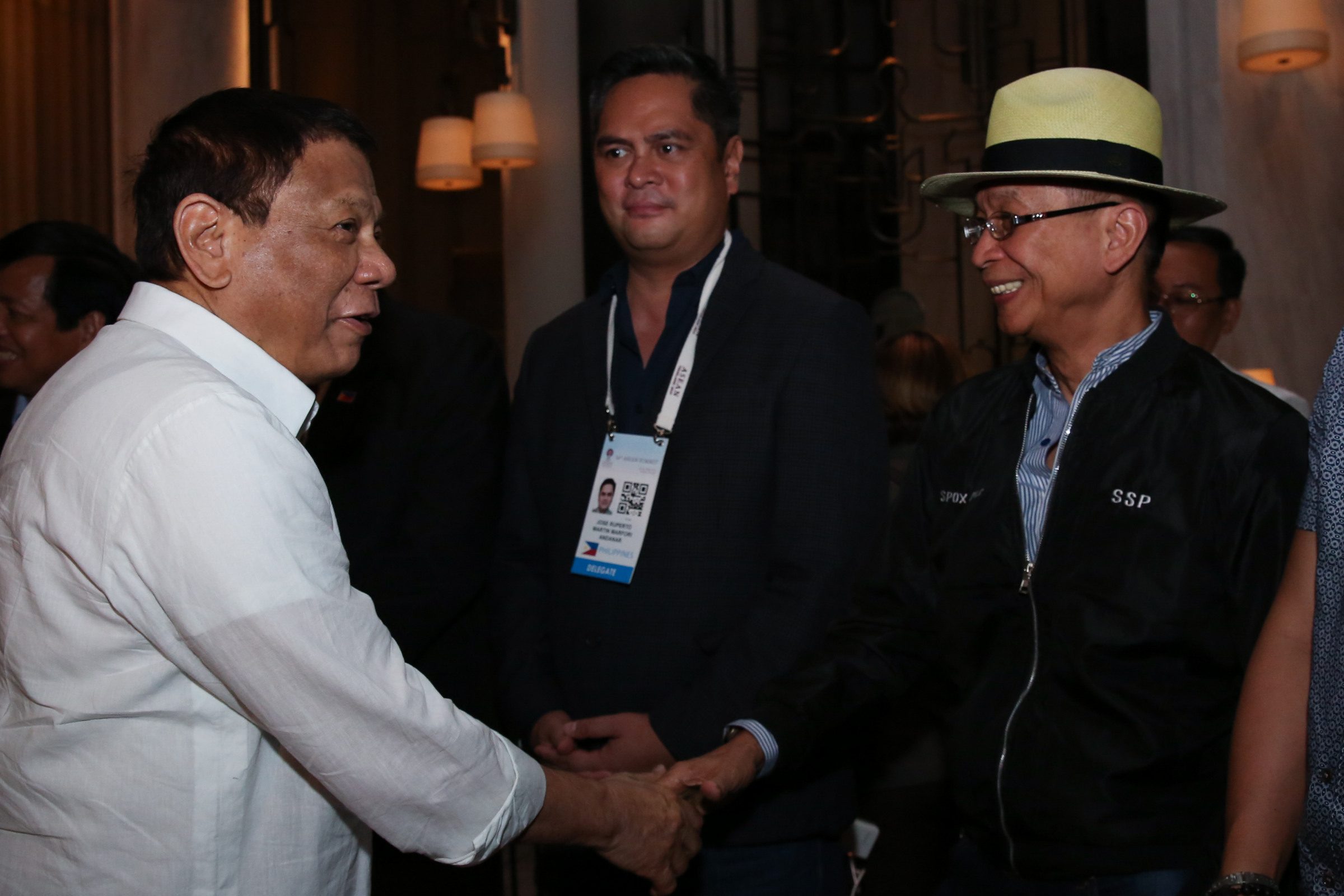
Here is what Panelo said in a Malacañang press conference on June 18:
“All the while we thought, when they said naka-anchor sila, nandoon sila sa tabi ng shoreline. Kasi when you anchor a ship or a vessel, nandoon sa tabi ng land. Eh lumalabas ngayon, hindi naman pala nasa shoreline o nasa tabi ng shore, kung hindi nasa gitna rin ng dagat…. Kasi kahit ako ang feeling ko noon, naka-anchor, paano nabangga iyon? Iyon pala hindi naman… nandoon daw sila sa dagat.”
(All the while we thought, when they said they were anchored, they were by the shoreline. Because when you anchor a ship or a vessel, it is usually by the land. Now it turns out it was not by the shoreline but in the middle of the sea…. Because I myself thought, if it was anchored, how could it be hit? Now it turns out they were in the middle of the sea.)
Panelo said that because of new circumstances, “there is now a doubt” if the Filipino captain’s version is true. “Kaya nga kailangan maimbestigahan na (That’s why we need to investigate it).”
Other Cabinet members also doubted if the Chinese ship intentionally sank Gem-Ver.
Energy Secretary Alfonso Cusi said on June 16 that if the Chinese ship intentionally rammed Gem-Ver, the boat would have been left with a bigger damage. But Cusi saw the damage as “daplis lang” (just a graze).
On June 19, Agriculture Secretary Emmanuel Piñol referred the testimony of Gem-Ver cook Richard Blaza to question if the sinking was intentional.
“Hindi nila matukoy kung intentional o accidental ang pangyayari sapagkat ayon kay Richard Blaza, posibleng hindi sila nakita ng barko ng Intsik,” said Piñol. (They cannot determine if the incident was intentional or accidental because according to Richard Blaza, it is possible that the Chinese ship did not see them.)
Citing the opinion of an unnamed “Coast Guard expert,” Senate President Vicente Sotto III also claimed on June 24 that a Chinese ship did not sink the Filipino boat.
On the night of their return from sea on June 14, however, boat captain Junel Insigne stood firm against the tide of skepticism. He said the Chinese intentionally rammed them.
Here is Insigne’s interview on June 14.
“Biglang bigla pong nabangga kami. Mabilis ang takbo, mabilis ang takbo, kaya ang pagbangga sa amin naputol ‘yung hulihan biglang lumubog ‘yung bangka namin, biglang lumubog. Ngayon po pagbangga po sa amin, tumigil, ‘yung lansa bago umikot bago sinindihan ‘yung ilaw, maraming ilaw. Eh ‘di kitang kita kami maliwanag. Noong makita kaming lubog na, naglalanguyan na kami, biglang umatras ho nang mabilis, bago pinatay ‘yung ilaw, bago tumakbo palayo, iniwanan na po kami. Kung ano sana akala ko tutulungan kami na makaakyat kami eh wala eh, tinakbuhan po kami.”
(We were rammed fast. They were fast, so when they rammed us, the rear of the boat got cut off and our boat sank. After ramming us, the boat stopped, turned around, turned on its lights, a lot of lights. We were seen, it was bright. When they saw us already sinking, swimming, it reversed quickly before closing its lights, before speeding away, leaving us. I thought they would help us, that we can climb up, but no, they ran from us.)
Insigne on June 18 vented his frustration that the Duterte government seems not to believe them, especially after Duterte downplayed the issue as a maritime incident. “Parang balewala lang po pagbangga sa amin (It’s like the ramming meant nothing),” Insigne said in an interview with ABS-CBN News.
A day later, Insigne changed his tune – after a closed-door meeting with Piñol in the house of Gem-Ver’s owners, which was surrounded by over 20 cops in full battle gear.
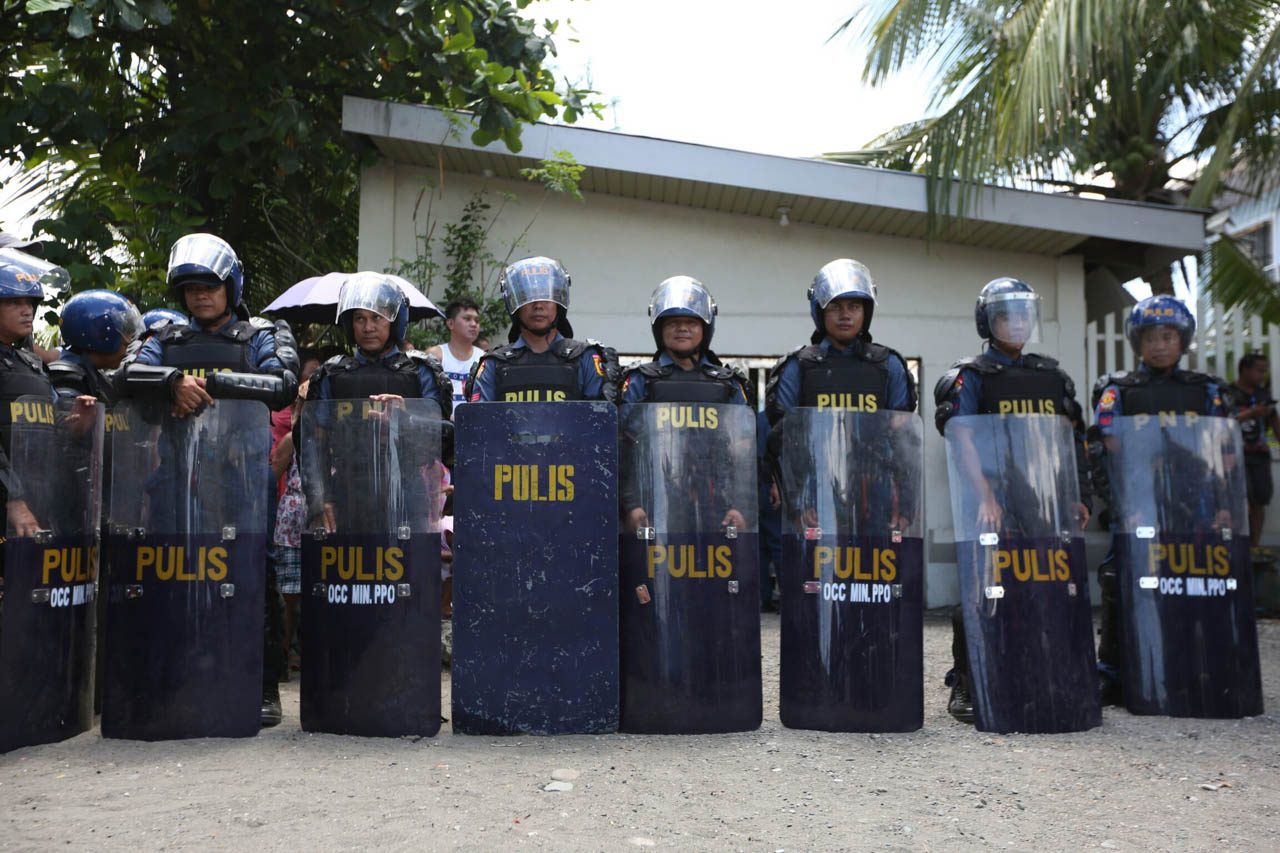
“Naguguluhan po ako dahil ‘pag ano ko po hindi ko pa naano kung talagang bangga na po eh (I am confused because I really do not know if we were really rammed),” a somber Insigne said on June 19.
Were the fishermen asleep?
Further absolving the Chinese ship, the Duterte government amped up false reports that the Gem-Ver fishermen were asleep when the Chinese vessel rammed them. They argued that the sleeping Filipinos could not possibly accuse China of ramming their boat.
Panelo and Piñol said in press conferences and interviews that only one crew member was awake during incident: the boat’s cook, Blaza, who had just finished cooking outside the boat’s cabin.
Panelo claimed that Filipinos did not know, at first, that only Blaza was awake when a Chinese vessel rammed Gem-Ver.
Here is Panelo’s statement in his June 18 press conference:
“Hindi natin alam na iisa lang pala nakakaalam noong pangyayaring iyon dahil tulog lahat iyong fishermen. In fact, ginising niya pa iyong kapitan and he was starting the engine – pero too late.”
(We didn’t know that only one person knew of the incident because all other fishermen were asleep. In fact he even woke up the captain and he was starting the engine – but it was too late.)
Blaza said, however, that he woke up his crewmen before the Chinese boat hit the fishing boat’s back. Filipino boat captain Insigne even tried to maneuver the boat away from the Chinese boat’s path.
But they were no match for the Chinese’s speed. (READ: Filipino fishermen awake when Chinese ship rammed their boat)
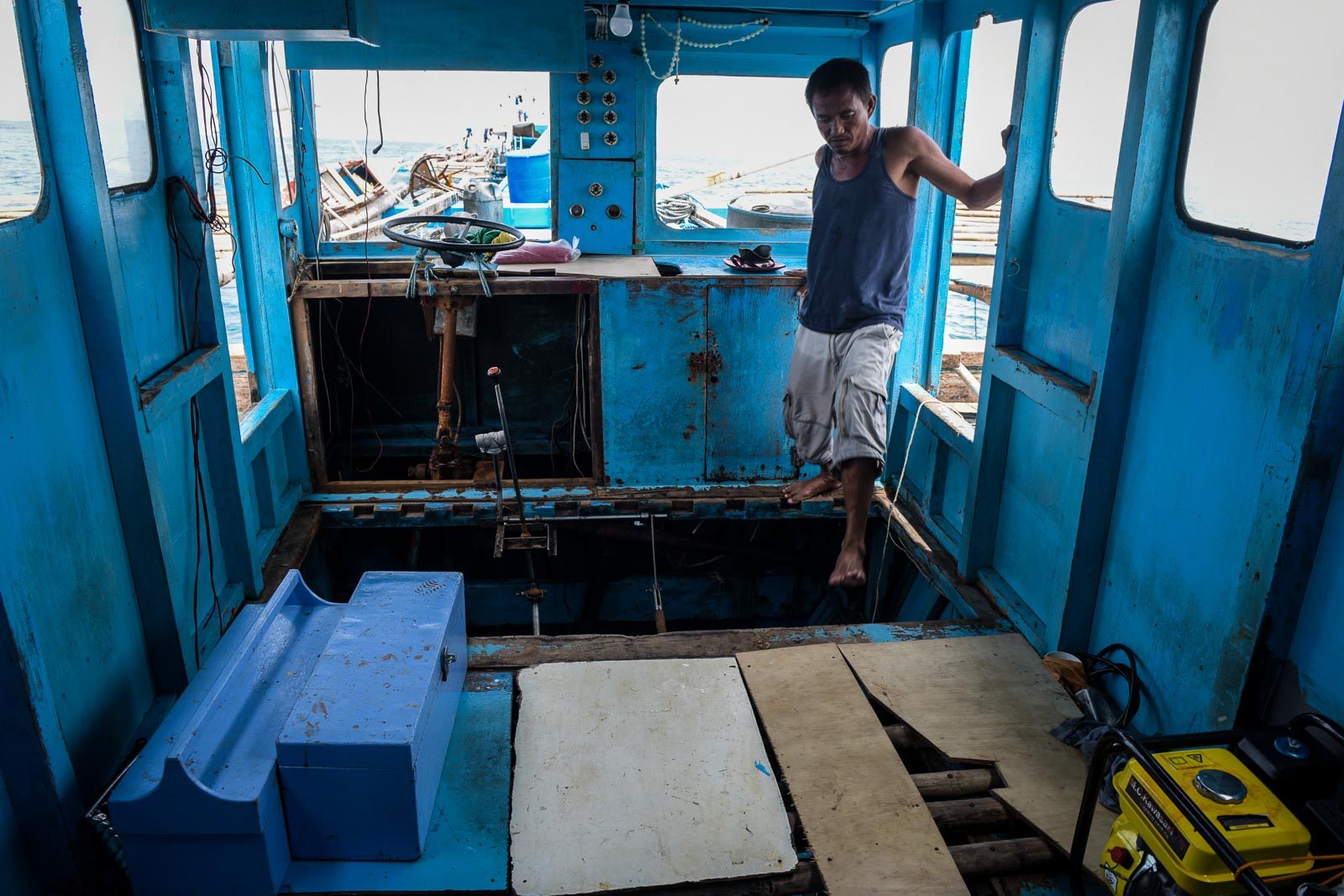
Below is Blaza’s statement in a June 17 interview:
“May kabilisan ang takbo niya, kaya ginising ko na si kapitan at mga tao. Pinaggigising ko na ang mga kasama ko na mahahagip kami.”
(It was going fast, so I woke up our captain and our crew. I woke up our crew because we were about to be rammed.)
This account of Blaza was confirmed by at least 4 other fishermen in the boat. They attested that Gem-Ver had at least 3 light sources flashing for other ships to see it from afar: two hanging in its masts, and one in its rear.
Did the Chinese ship abandon the Filipinos?
More than the ramming, the worst sin of all was how the Chinese vessel abandoned the Filipinos.
Yet, Duterte’s spokesman even doubted this part of the story. He said the Chinese had claimed that they checked if the Filipinos were all right, and saw that they were.
Read Panelo’s statement on June 18:
“Kasi ang sabi, pagkabangga bumalik eh! Bumalik daw ‘yung barko, sinilip sila, inilawan sila pagkatapos, umalis. Sa version naman ng Chinese, bumalik para tingnan kung okay sila o hindi. Parang ‘yan ang lumalabas eh. Nu’ng nakita daw nilang okay, umalis na sila. But these are versions of both sides na kailangan nating ma-determine exactly ano ba talaga nangyari.”
(Because the fishermen said, after the ramming, the ship came back! The ship returned, they took a peek, turned on their lights, then left. But in the Chinese version, the ship returned to check whether the Filipinos were okay or not. That’s what it seems to be. When they saw they were okay, then they left. But these are version of both sides where we need to determine what exactly happened.)
The Gem-Ver fishermen’s version of the story, which Panelo cited, is the opposite of the version of the Chinese.
According to the Gem-Ver crew, the Chinese vessel turned around after it rammed them and turned on its lights on the wreckage. The Filipino fishermen thought they would be saved, initially believing that the Chinese boat unintentionally hit them.
But as they were asking for help, the Chinese boat turned off its lights, sped away, and never returned.
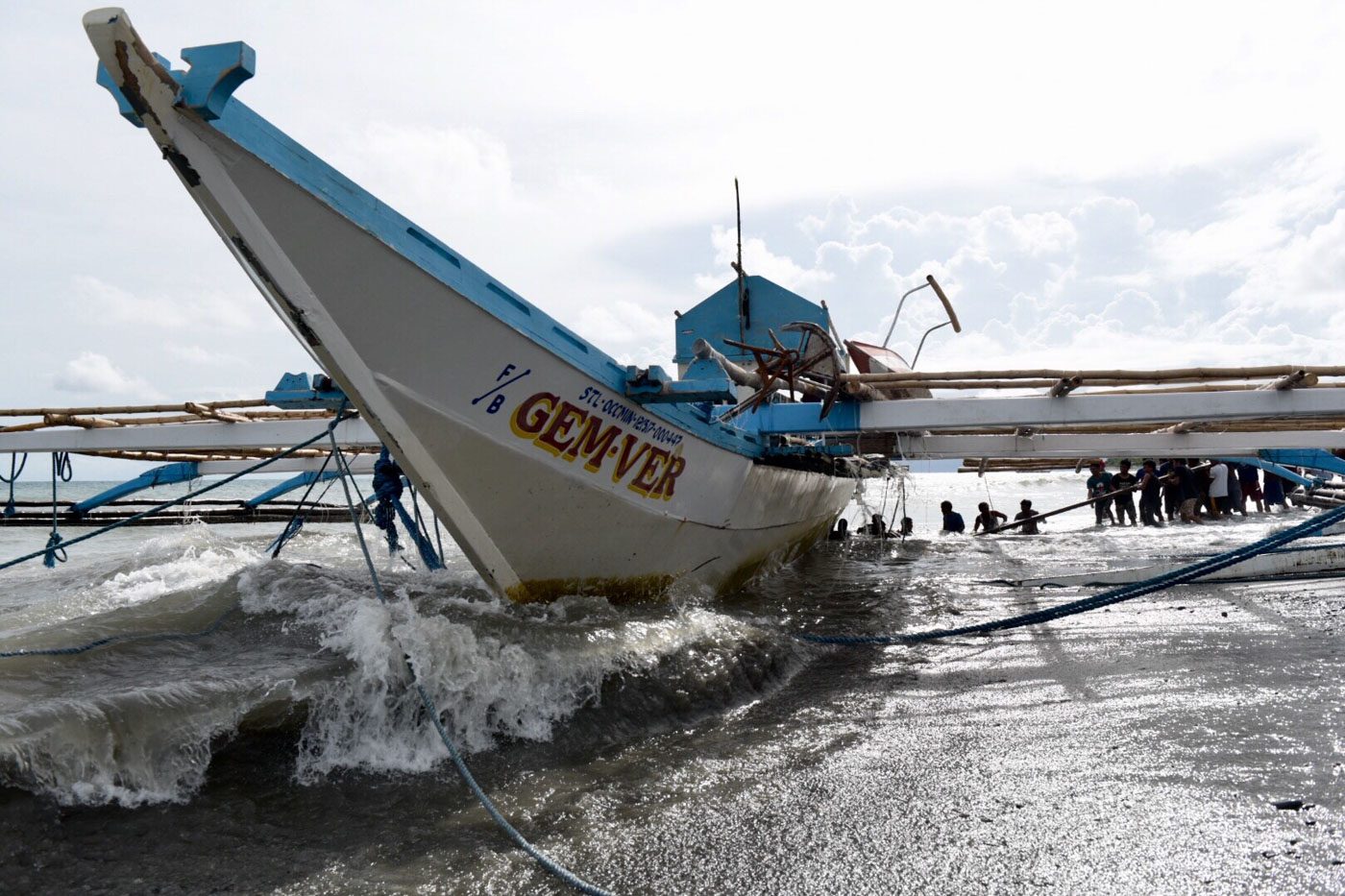
What about China’s statement on June 18 that the Chinese ship pulled back because it was “besieged by 7 or 8 Filipino fishing boats”?
Insigne immediately disputed this claim. Satellite data on the night of June 9, when the incident happened, also showed the vessels at Recto Bank were too far away from each other to constitute a swarm.
The drop of truth in China’s statement was that the Filipino fishermen rode their kayak-sized wooden boats closer to the Chinese ship – to ask for help.
But for Insigne, the Chinese were even avoiding them, turning off the ship’s lights before leaving them. The crewmen of Gem-Ver did not see any Chinese step out of the boat to offer help.
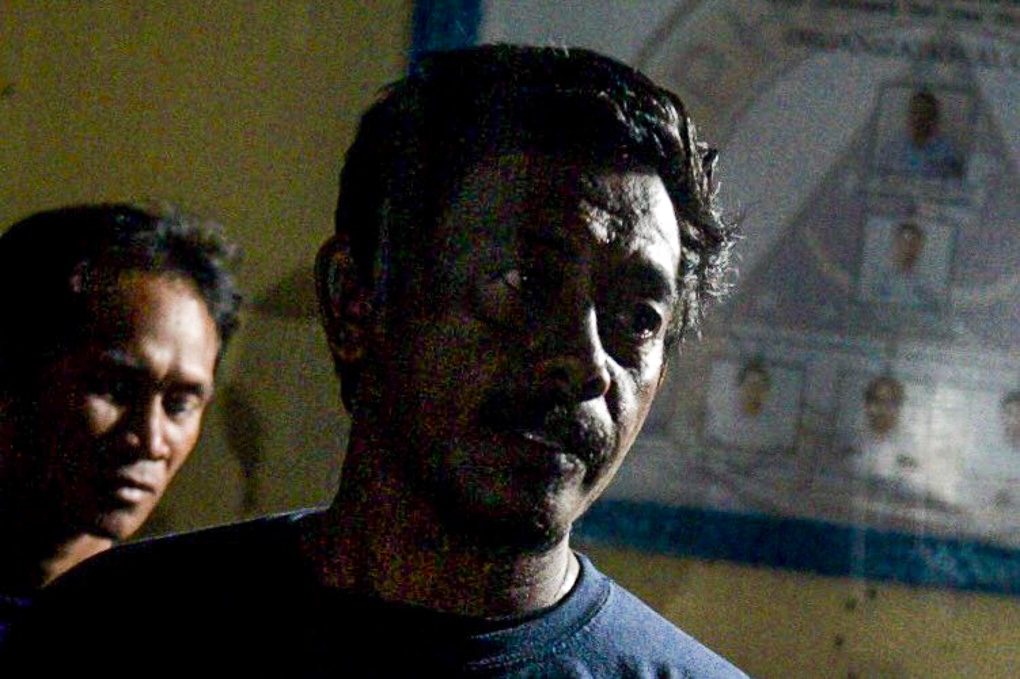
Insigne made this statement on June 14:
“Talagang binangga nila kami. Kung talagang kami’y tutulungan ‘nyo, dapat hindi sila tumakbo palayo. Eh nakitang lumubog, tumakbo sila palayo, pinatay pa ang ilaw para hindi makilala, para hindi makita.”
(They really rammed us. If they really wanted to help us, they shouldn’t have ran off. They saw us sink, they ran off, they even turned off their lights so they couldn’t be identified, so they couldn’t be seen.)
Duterte’s verdict
The incident is only part of the stream of a grander issue: the Philippines’ rights over Recto Bank.
Duterte himself downplays the Philippines’ exclusive rights to fish in the area.
This is despite a 2016 international ruling that recognizes Recto Bank as part of the Philippines’ exclusive economic zone, a 200-nautical mile area where the Philippines has the exclusive rights to fish and enjoy other resources, such as oil and natural gas.
Simply put: The waters where the Philippine boat was sunk by a Chinese ship belong to the Philippines alone.
Duterte on June 21 said the Recto Bank incident was not an attack on Philippine sovereignty, but failed to mention the country’s sovereign rights over the area.
On June 24, Duterte stressed that Recto Bank “has two conflicting claims of ownership,” even if a Hague tribunal already ruled, once and for all, that the West Philippine Sea belongs to the Philippines.
In effect, Duterte, like China, was not recognizing the Hague ruling of 2016.
“I’m sorry, but that’s how it is. It is a maritime incident. Little in the sense that there was no confrontation, there was no bloody violence,” Duterte said on June 24, in the first message he directly addressed to the Gem-Ver fishermen.
Duterte said the Recto Bank incident “is not a reason to go to any military exercise there,” otherwise the Philippines would be courting war.
“So I’m sorry kung ‘yun ang feeling nila. At alam naman nila that that area is claimed by both. Para sa China, it happened within their jurisdiction. Sa atin, within our jurisdiction because it has two conflicting claims of ownership,” said Duterte.
(So I’m sorry if they’re feeling that way. And they know that that area is claimed by both. For China, it happened within their jurisdiction. For us, within our jurisdiction, because it has two conflicting claims of ownership.)
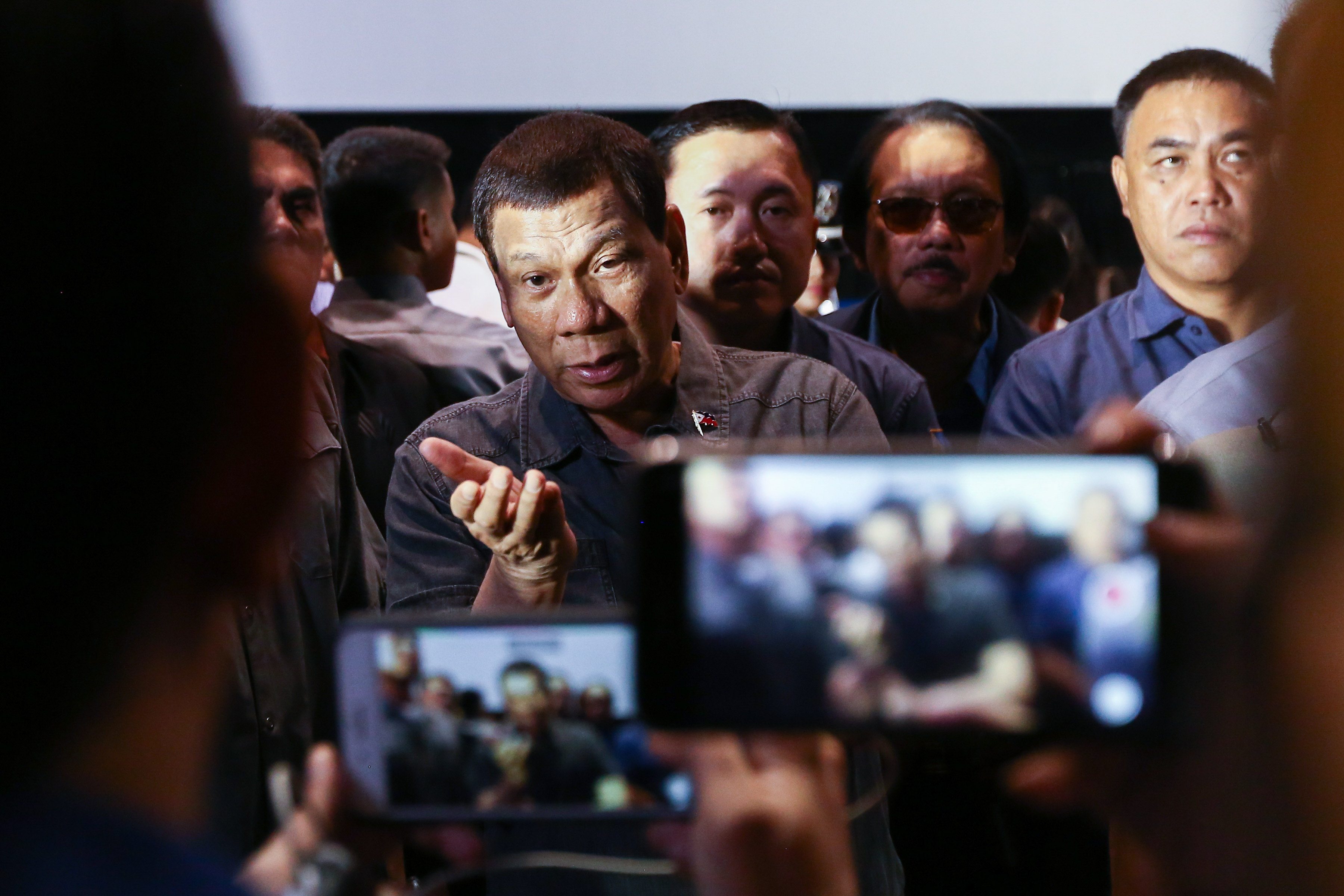
In the same June 24 interview, a journalist asked the President: “Will you prevent China from fishing within our EEZ? Iyong pwede po bang… kasi ‘yun ‘yung request ng mga fishermen?” (Will you prevent China from fishing within our EEZ? Can it be… because that’s the request of the fishermen?)
Duterte answered: “I don’t think that China would do that. Why? Because we’re friends. And they are of the same view that that should not result in any bloody confrontation.”
Panelo, interpreting Duterte, said the Philippines “will allow” China to fish in the West Philippine Sea “kasi we’re friends naman, ‘di magbigayan muna tayo (because we’re friends, so let’s give way to each other).”
Supreme Court Senior Associate Justice Antonio Carpio later refuted the Duterte government and said it cannot allow Chinese fishermen to fish in the West Philippine Sea. He said this is unconstitutional.
“This sovereign right belongs to the Filipino people, and no government official can waive this sovereign right of the Filipino people without their consent,” Carpio said in a statement on June 25.
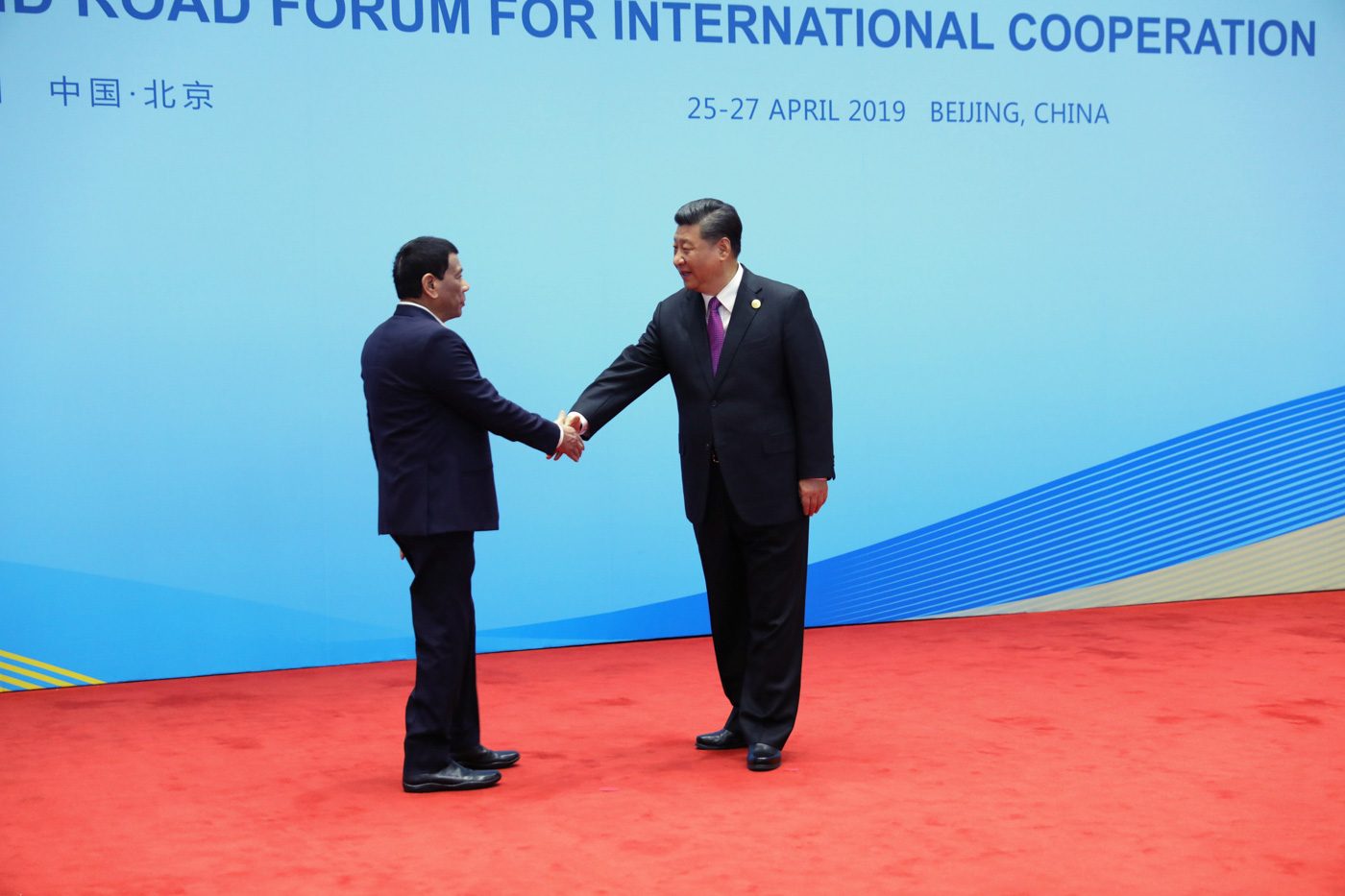
Gregory Poling, director of the Washington-based Asia Maritime Transparency Initiative, said the Duterte government seems “to extend the benefit of the doubt” to the Chinese.
In an email to Rappler, Poling said the initial statements from the Department of National Defense, the Department of Foreign Affairs, and the Philippine Navy “were exactly what one should hope for – condemning the clear violations of international law and decency in leaving 22 fishers to die.”
“But the subsequent statements from the Palace and senior officials, especially Secretary Piñol, are more worrying and imply that the government is more prepared to extend the benefit of the doubt to the Chinese culprits in order to make this incident go away without damaging its broader rapprochement with Beijing,” said Poling.
Experts told Rappler the Recto Bank incident could only be a test of the Duterte government’s reaction to China’s similar moves in the future. If the government reacts lightly, this could further embolden China to ram more Filipino boats to drive them away from the West Philippine Sea.
This, after all, is the same thing that China is doing against Vietnamese fishermen.
Duterte’s reaction enraged his critics. Directly addressing the Gem-Ver fishermen for the first time, the President took on a dismissive tone. “I’m sorry, but that’s how it is. It is a maritime incident.”
More than lawyering for China, has “The Punisher” rendered his judgment?
A joint Philippines-China investigation into the Recto Bank incident is coming up. But if Duterte already dismissed it as a “little maritime incident,” who among his men can go against the President? – Rappler.com
Add a comment
How does this make you feel?
There are no comments yet. Add your comment to start the conversation.